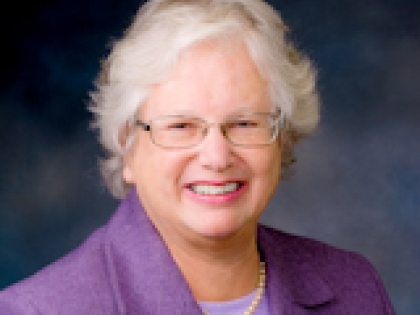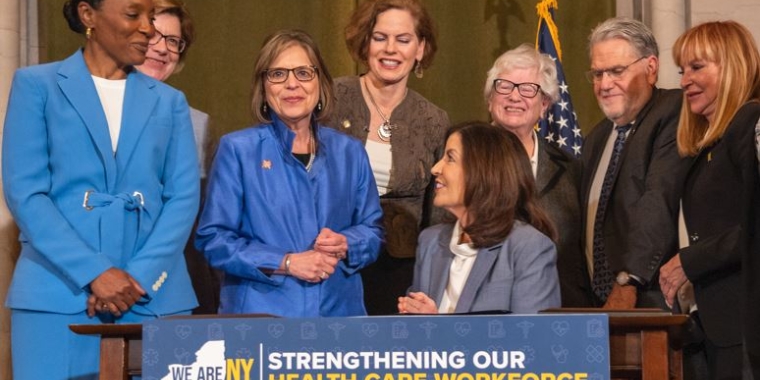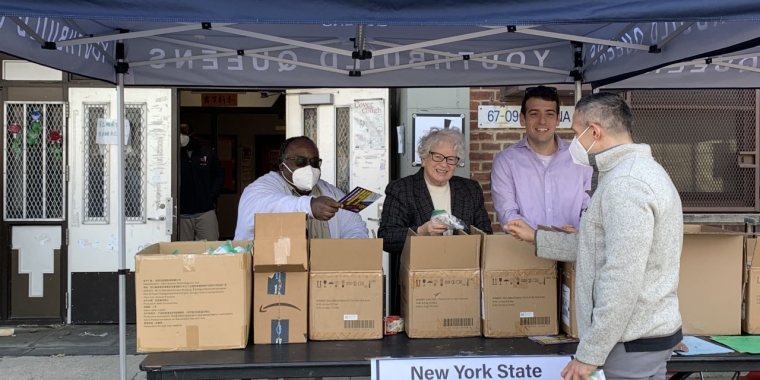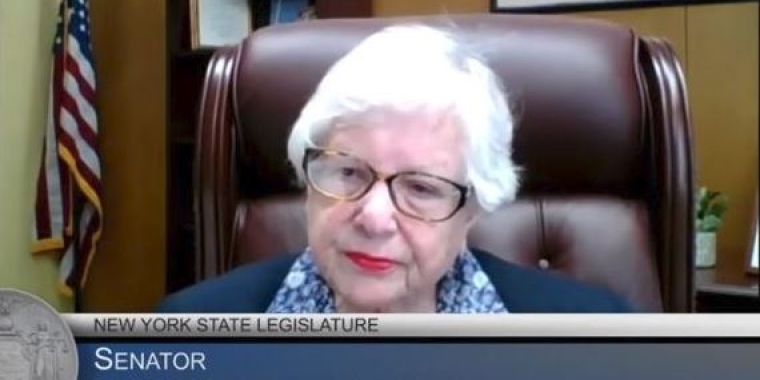
Governor Hochul Signs Stavisky Sponsored Clinical Nursing Simulation Legislation
May 17, 2023

ALBANY- On Monday, Governor Kathy Hochul signed Senator Toby Ann Stavisky sponsored legislation (S447-C) into law, strengthening New York’s health care workforce by permitting nursing students to complete up to one third of their clinical training through simulation experiences. Overseen by the New York State Education Department, simulation training gives students hands-on experience in clinical environments while allowing nursing education programs to offer more options for clinical education. As New York currently faces a nursing shortage, expanding simulation experiences can help expedite training and deliver an influx of nurses where they are needed most.
"We've been talking about the nursing shortage for years and now we're finally doing something about it. By utilizing technology to simulate clinical training, we will graduate a new generation of New York trained nurses with hands-on experience,” says State Senator Toby Ann Stavisky (11th Senate District). “Currently, nursing programs are turning away qualified applicants. With this legislation, New York will join 31 other states in allowing simulation experience. Rarely have I seen such unanimity on a bill. This statute is a result of a collaboration between all stakeholders: Governor Kathy Hochul, Assemblymembers Donna Lupardo and Pat Fahy, legislative leaders and staff, CICU, SUNY and CUNY Chancellors and SED."
This legislation allows for up to one third of clinical education in nursing certificate and degree education programs to be completed through simulation experience. This will make nursing education more accessible, helping to address New York’s nursing shortage, which is projected to reach a workforce need of nearly 40,000 employees by 2030. Training needed to become a highly skilled nurse in New York limits clinical placements in a hospital setting, and until students complete those placements, they cannot receive their nursing license and join the workforce. Instead of forcing eager students to wait for an open spot in a hospital, expanding simulated training will help clear the logjam, address the shortage, and ensure high quality care for millions of New Yorkers. High-tech, high-quality simulation training is already in place in 31 states.
“Our nurses have been invaluable to our health care system, especially throughout the pandemic, but too often feel overworked doing the jobs that they love, which has only been amplified by the current nursing shortage,” Governor Hochul said. “I’m proud to sign legislation strengthening our health care workforce expediting training and allowing more capable nurses into the workforce improving care for all and creating a safer, healthier New York.”
Assemblymember Donna Lupardo said, “Allowing up to one-third of clinical training to be simulation based will help address NY’s nursing shortage, while exposing students to a valuable, hands-on learning experience. I have observed these trainings at Binghamton University’s Decker College of Nursing, and was impressed at how realistic these state-of-the-art simulations can be. I’d like to thank the Governor for signing this legislation, Senator Stavisky for her partnership, and to the advocacy of so many including SUNY Chancellor King, CUNY Chancellor Matos-Rodriguez and CICU.”
Acting State Health Commissioner Dr. James McDonald said, “This legislation will add more-qualified and practice-ready nurses into the healthcare workforce. I thank Governor Hochul for once again demonstrating her commitment to the health of our communities and to improving conditions for those dedicated to patient care throughout New York State, and thank Sen. Stavisky and Assembly Member Lupardo for sponsoring the bill.”
Board of Regents Chancellor Lester W. Young, Jr. said, “Nurses are dedicated, vital healthcare professionals who serve some of our most vulnerable populations. The Board of Regents is committed to doing everything it can to help assuage the nursing shortage that is gripping our healthcare system with policies to improve and enhance clinical education to prepare more future nurses for real-world, life-saving situations.”
State Education Commissioner Betty A. Rosa said, “Our first priority is always public protection. We worked closely with stakeholders on this important legislation to ensure that quality simulation experience in nursing education programs is clearly defined in order to prepare nursing students for safe, effective, entry-level practice. We are grateful to the Governor and Legislature for their collaboration and willingness to ensure that clinical simulation is used appropriately and responsibly, giving our nurses the best education possible and prioritizing public safety.”
SUNY Chancellor John B. King, Jr. said, “I commend Governor Kathy Hochul for supporting the training of New York's next generation of nurses by signing this important piece of legislation. SUNY has more than 70 nursing programs across our system, but many of their students struggle to find a high-quality clinical placement near their college. Without enough high-quality clinical placements, nursing programs across New York cannot expand to meet the growing demand to fill the state's nursing needs. I would like to thank our partners at CICU, CUNY, and the New York State Education Department for working together to solve this pressing workforce and health care challenge."
CUNY Chancellor Félix V. Matos Rodríguez said, “New York continues to need more qualified, certified nurses and the nursing simulation bill will allow nursing students to get into the workforce more quickly without sacrificing their rigorous training. I’m grateful to Governor Hochul and legislative leaders for this sensible measure to ease the state’s the critical nursing shortage and get CUNY nursing students into the healthcare workforce where they are sorely needed.”
President of the Commission on Independent Colleges and Universities Lola W. Brabham said, “Thank you, Governor Hochul, for your leadership and for moving quickly to sign this critical legislation. It is a significant step toward addressing New York's critical nursing shortage and we are grateful to Legislature and our terrific partners at SUNY, CUNY, and the New York State Education Department for their close collaboration on this legislation. We are so fortunate to have a governor who values higher education, has an unwavering commitment to investing in the future of New York’s workforce, and understands that higher education, both public and private, is developing the next generation of entrepreneurs, educators, and healthcare workers that our State needs.”

